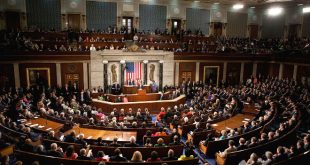 The New York Times is again on the warpath against what it calls “predatory lending.”
The New York Times is again on the warpath against what it calls “predatory lending.”
Just what is predatory lending? It is lending that charges a higher interest rate than people like those at the New York Times approve of. According to such thinking — or lack of thinking — the answer is to have the government set an interest rate ceiling at a level that will be acceptable to third parties like the New York Times.
People who believe in government-set price controls — whether on interest rates charged for loans, rents charged for housing or wages paid under minimum wage laws — seem to think that this is the end of the story. Yet there is a vast literature on the economic repercussions of price controls.
Whole books have been written just on the repercussions of rent control laws in countries around the world.
These repercussions include the housing shortages that almost invariably follow, the deterioration of existing housing and the shift of economic resources — both construction materials and construction labor — from building ordinary housing for the general public to building luxury housing that only the affluent and the rich can afford, because that kind of housing is usually exempted from rent control.
There is at least an equally vast literature on the repercussions of minimum wage laws. Unemployment rates over 20 percent for younger, less skilled and less experienced workers have been common, even in normal times — with much higher unemployment rates than that during recessions.
Against this background of negative repercussions from various forms of price control, in countries around the world, why would anybody imagine that price controls on interest rates would not have repercussions that need to be considered?
Yet there is remarkably little concern on the political left as to the actual consequences of the laws and policies they advocate. Once they have taken a stance on the side of the angels against the forces of evil, that is the end of the story, as far as they are concerned.
Low-income people often get short-terms loans when they run out of money to meet some exigency of the moment.
The interest rates charged on such unsecured loans to people with low credit scores are usually higher than on loans to people whose higher incomes and better credit histories make them less of a risk.
Crusaders against such loans often make the interest rate charged seem even higher by quoting these interest rates in annual terms, even when the loan is actually repayable in a matter of weeks. It is like saying that a $100 a night hotel room costs $36,500 a year, when virtually nobody rents a hotel room for a year.
Because those who make unsecured short-term loans are usually poor and often ill-educated, the political left can cast the high interest rates as unconscionably taking advantage of vulnerable people. But similar economic principles apply to more upscale short-term lending to well-educated people who have valuable possessions to use as collateral.
A small-time businessman who suddenly finds that he does not have enough cash on hand, or readily available from a bank, to pay his employees this week, knows that if he doesn’t pay them this week he may not have any employees next week — and can face lawsuits the week after that.
There is an upscale lending market available to such people, where he can use his expensive personal possessions as collateral to get the money he needs immediately.
He can borrow more money than the poor can borrow, and at not as high an interest rate. But his interest rate can still be 200 percent if figured on an annual basis — even though he may be able to pay off the loan next month when his customers pay him what they owe him, so he is paying only a small fraction of that hypothetical 200 percent, just as the poor are paying only a small fraction of the hypothetical 300 percent or 400 percent that they are charged.
Editorial demagoguery against “predatory” lending might well be called predatory journalism — taking advantage of other people’s ignorance of economics to score ideological points, and promote still more expansion of government powers that limit the options of poor people especially, who have few options already.
COPYRIGHT 2014 CREATORS.COM
Photo credit: KHRawlings (Creative Commons) – Some Rights Reserved
 Thomas Sowell is a senior fellow at the Hoover Institution, Stanford University.
Thomas Sowell is a senior fellow at the Hoover Institution, Stanford University.
 CURE News and Clergy Blog News and Commentary for Christians
CURE News and Clergy Blog News and Commentary for Christians



